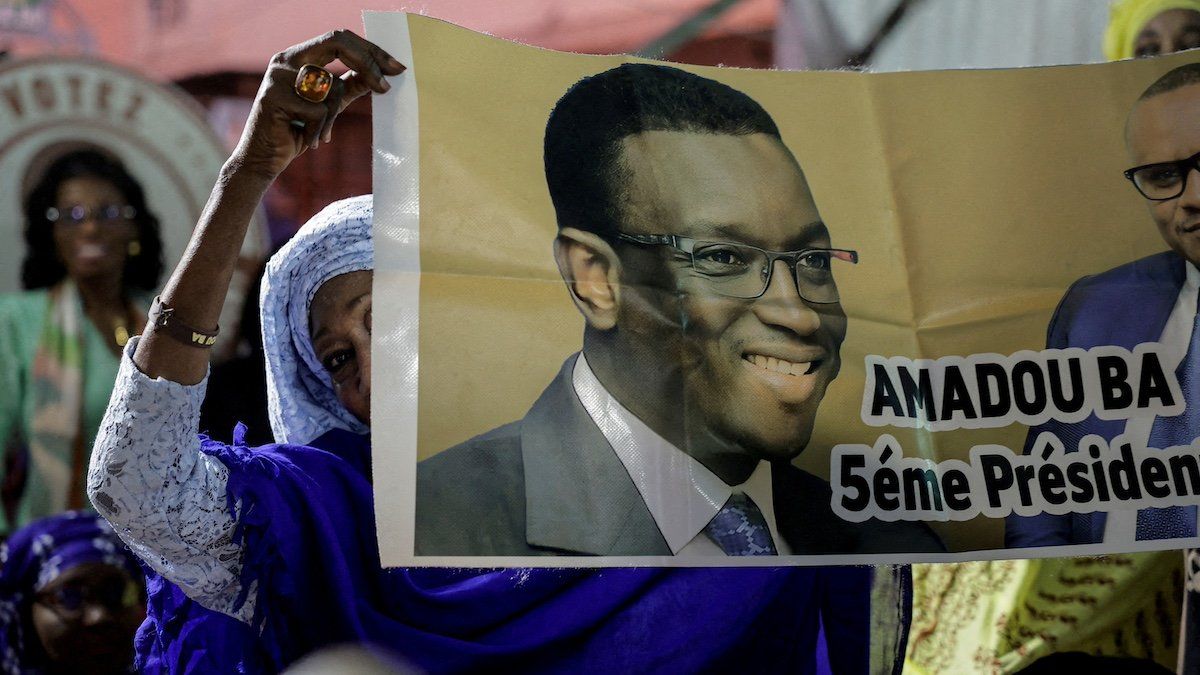Voters in Senegal face a choice between continuity or a new direction for West Africa’s most stable democracy as they head to the polls Sunday.
The country’s reputation for fair and peaceful transitions of power looked like it was at risk last month when President Macky Sall called for a 10-month delay of elections scheduled for Feb. 25. The move was an attempt to buy time to bolster support for his party and its candidate, Amadou Ba, but it backfired, according to Eurasia Group analyst Tochi Eni-Kalu.
"The Constitutional Council pushed back against proposals to delay the election beyond the end of Sall's mandate on 2 April, leaving him with no choice but to accept their rulings in the face of opposition and public pressure" he says.
Opposition candidate Bassirou Diomaye Faye is now riding a wave of momentum thanks to anger over the delay, but it likely won’t be enough to get him over the 50% mark he needs to win outright. If Ba also falls short, they go to a runoff, and that’s where it gets interesting. Unlike other close elections in Senegal, in 2000 and 2012, the opposition isn’t necessarily unified against the incumbent.
“The key thing to watch is how the other big fish align,” says Eni-Kalu.
If Ba and his BBY party remain in power, Eni-Kalu expects broad continuity with Sall’s administration. A Faye victory could see Senegal take on a more nationalist tack, though it’s not clear how far he can push the most radical proposals, like leaving the CFA Franc currency union.
